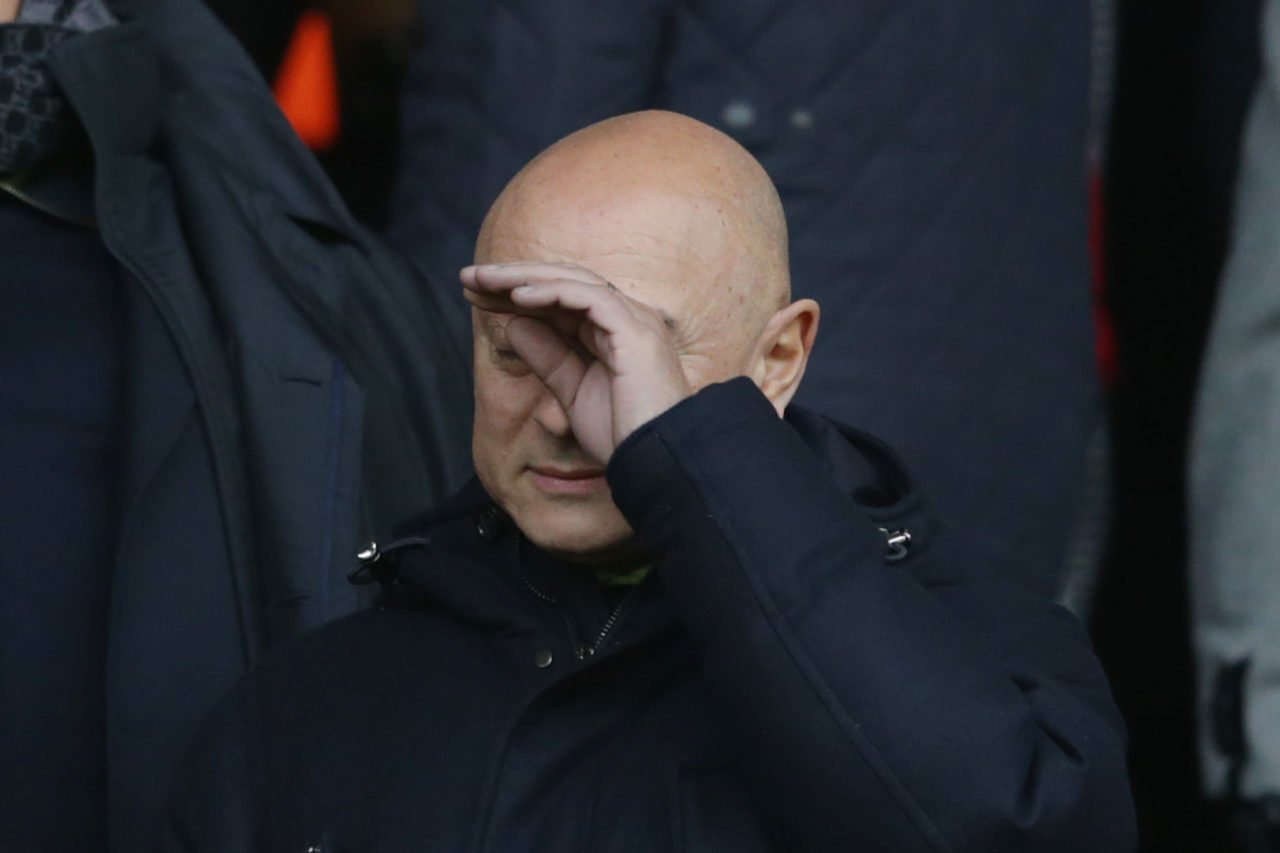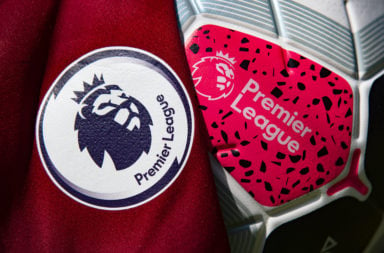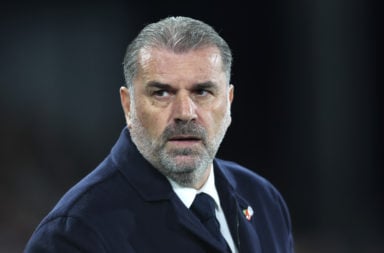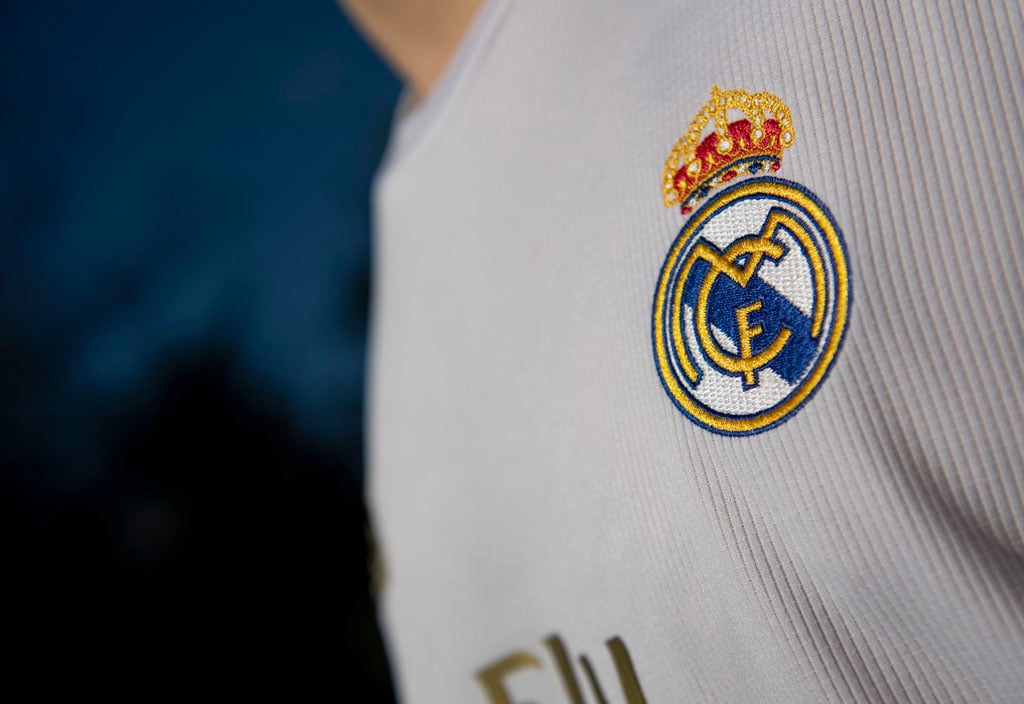Eleven full-time managers, hundreds of players, and one league cup—the only constant through all that is Daniel Levy.
Prior to investment group ENIC’s takeover in 2001 (Guardian), Tottenham had won the most FA Cups in the competition’s prestigious history, something to be genuinely proud of.
Spurs waved the flag for success in cup competitions, with trophies coming both domestically and in Europe, as they were the first English side to win a European competition (The Sportsman).
Regrettably, Spurs have barely been able to live up to that legacy of being a great cup team during the Daniel Levy era of Tottenham Hotspur.
In 2001, Lord Alan Sugar sold Spurs for £22 million to ENIC. Daniel Levy was then appointed to the board and is currently the longest-serving chairman of any Premier League club (ECA).
Levy sought to usher in a new era for Tottenham, immediately setting his long-term plans in motion to see Tottenham not only grow as a club on the pitch but as an institution of it too.
Under Levy’s leadership, Spurs have constructed a state-of-the-art training facility, as well as an immaculate, billion-pound stadium that consistently wins awards for its environmental friendliness, functionality, and ingenuity (RIBA). Levy played a massive role in both development projects.
Despite raising Tottenham’s valuation from £22 million in 2001 to over £2.7 billion in 2023 (Statista) and finding themselves ranked 9th among the most valuable clubs in the world (Forbes), Levy has had his fair share of criticism over the years, mostly towards football-related activity.
Off the pitch, Spurs fans can see that Levy has done a stellar job in his regeneration of North London while also taking Spurs from a consistently lower or mid-table club to one that now challenges Europe’s elite competitions, even being 90 minutes away from winning the most prestigious club trophy in the world, the Champions League [BBC].

SOUTHAMPTON, ENGLAND – JANUARY 25: Tottenham Hotspur Chairman Daniel Levy during the FA Cup Fourth Round match between Southampton and Tottenham Hotspur at St. Mary’s Stadium on January 25, 2020 in Southampton, England. (Photo by Robin Jones/Getty Images)
Has Levy taken the club as far as he possibly can?
I’m going to highlight some of his biggest mistakes and some of his biggest successes to determine whether Daniel Levy is deserving of our love and respect.
Hugo Lloris in his shot-stopping prime, Rose and Walker bombing up the wings, Jan and Toby the Belgian walls, Wanyama the rock, Dembele the ballerina built like a tank, Eriksen pulling the strings, Dele with his youthful exuberance, Sonny finding fiery consistency, Harry Kane the talisman, and Mauricio Pochettino at his charismatic best This was Tottenham from 2016–2018, as you remember it.
Fresh off of finishing second in the league, Tottenham then became the first English club to not make a single transfer in the following summer transfer window, choosing to rely on the players that were currently at the club, something that the English game had never seen before. [Evening Standard]
Spurs even started the 2018-19 campaign strongly, thrashing Jose Mourinho’s Manchester United 3-0, with many pundits alluding to Tottenham’s strong squad unity and growing resilience as reasons for their ongoing successes (Sky Sports).
However, as the season raged on, Spurs began to run out of steam and were desperately in need of fresh blood in the January window to renew their title charge. Alas, no signings came again.
Daniel Levy failed to back Pochettino with quality signings to further his philosophy for two transfer windows in a row, leading to the stagnation of the squad and eventually a notable decline.
Looking back on Pochettino’s sacking in 2019, he himself alluded to the need for a painful rebuild, something many Spurs fans could see even then (Evening Standard).
Many fans will point to the prime example of Arsenal and how Spurs should have conducted their business after finishing second. Mikel Arteta’s side had just come off an exhausting race with merciless Manchester City and ultimately finished in second place.
Choosing not to rest on their laurels, Arteta is immediately backed with three strong signings (with potentially more to come), with one of them being the £105 million acquisition of West Ham captain and England starlet Declan Rice, (BBC) a marquee signing for Arteta to build his team around, something that Spurs fans will argue that Levy should have done in 2018.
Pivoting to my personal biggest gripe with Levy, I detest his involvement in the infamous European Super League. The ESL was shockingly introduced to the world on October 15, 2021, and saw ruthless backlash and condemnation from fans globally.
UEFA are no angels themselves, and they cannot be seen as the “good guys” in this ordeal; however, the ESL epitomised pure greed, and Daniel Levy had Tottenham involved by being part of the 12 founding teams (Super League).
There are a few ways to look at the Super League and Spurs’ involvement: should Levy have been commended for building Tottenham’s stature to such a level that they were even in that conversation?
Or should he have opted out of the operation, siding with the fans’ demands that we would be better off with the tried-and-tested English pyramid system? Was it worth betraying our core values for new and greater financial avenues?
The fans spoke out and backed Levy into a corner to pull out of the Super League fiasco despite economic incentives to be part of it. Spurs weren’t the only ones to face backlash either, with every ‘Big 6’ English club coming to their senses and exiting it (Reuters).
What followed was a statement from Levy in which he claimed he was trying to support the wider football pyramid “We felt it was important that our club participate in the development of a possible new structure that sought to better ensure financial fair play and financial sustainability while delivering significantly increased support for the wider football pyramid,” (Tottenham Hotspur).
Daniel Levy’s tenure has not been perfect; however, there are credible and tangible reasons why Spurs haven’t been successful. Tottenham have faced unprecedented and fierce competition from state-funded clubs such as the arrival of Roman Abramovic to Chelsea in 2003 (The Guardian) and the much-maligned takeover of Manchester City by Sheikh Mansour and the UAE in 2008 (The Guardian), two clubs that have had seemingly infinite resources and finances pumped into them in order to win every trophy available.
Historical giants Manchester United, Arsenal, and Liverpool were always going to be threats, as they’re massive institutions that hold fan bases globally and see league-leading revenues come in from that.
Yes, Spurs have had ample opportunities to win trophies, such as the heartbreaking handball in Madrid, Leicester’s runaway 5000-1 fairytale, league cup final defeats, and more.
However, Daniel Levy has masterminded the club’s rise from mid-table mediocrity in the 1990s and 2000s to financial flourishment in the higher echelons of the Premier League today.
He’s had his fair share of luck, with the appointment of Martin Jol, bringing champagne football back to the lane, and restoring the club’s ‘To Dare is to Do’ insignia, which Harry Redknapp furthered.
Catching lightning in a bottle with Gareth Bale, seeing him develop into a global superstar, and the inspired appointment of Mauricio Pochettino. All this, among other smaller things, accelerated Tottenham’s progress as a football club, perhaps faster than Levy was prepared for.
The ill-timed stadium move after we spent the 2015-16 campaign unbeaten at home and failing to reinforce the squad at all during the two transfer window droughts are perfect examples of Levy not being ready to facilitate the great football team we had on the pitch.
Has Daniel Levy hit his ceiling in 2023 with just how far he can take Tottenham?
Countless times, we’ve been just 90 minutes away from winning trophies. Levy has built a world-class stadium and training facility to match the club’s growing ambitions, including new partnerships such as the first of its kind with Formula 1, (Formula 1) and since 2020 he’s invested over £440 million into our first team.
Ultimately, there’s a grand old Tottenham song called “When the Year Ends in One,” which was commemorated to celebrate Spurs reaching the 1991 FA Cup, which they went on to win. The song proudly boasts that anytime the year ends in a ‘1, Spurs win trophies (YouTube).
Since Daniel Levy’s appointment, that is no longer the case. A damning indictment of his tenure.
Daniel Levy deserves respect for establishing us among the wealthiest European elites.
That respect will only turn into love when he finally delivers us meaningful silverware and outlines a clear vision for Spurs to create their own echo of glory, akin to the great Bill Nicholson, whose ‘glory glory Tottenham Hotspur’, feels so far long ago.
Have something to tell us about this article?



